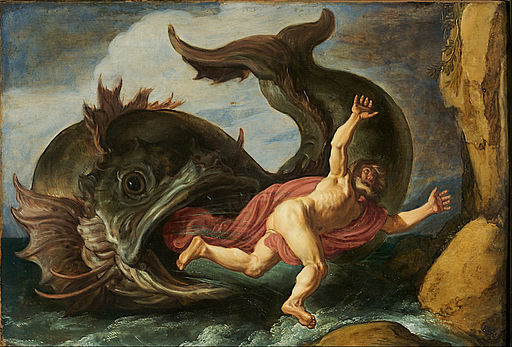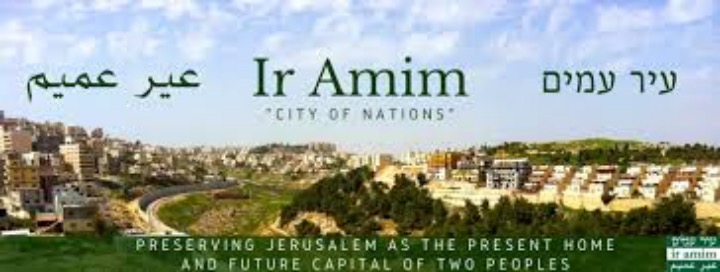When the reluctant and cranky prophet Yonah emerged from his three day incarceration inside a whale, his prayer for his personal salvation had been answered. He was alive! .This time he didn’t run away to Tarshish, he went straight to Nineveh. Now Nineveh was a city full of cruelty and evil ways. Following God’s directive Yonah roamed the city yelling “In forty days, Nineveh will be overthrown”(Yonah 3:4) Unbelievably, in a grassroots outpouring, the people of Nineveh listened to Yonah. The King of Nineveh himself, threw off his royal garments and joined his people, donning sackcloth and fasting. They honestly repented and were saved from total destruction.
Category Archives: Articles
I scream, you scream, everyone’s screaming about ice cream by Susie Becher
 The tagline of the mission statement on the Ben & Jerry’s website says that the company believes that “ice cream can change the world.” Ben & Jerry’s decision to stop the sale of its ice cream in the Occupied Palestinian Territories (OPT) may not end up changing the world, but the uproar it has generated has done more to raise awareness of the existence and location of the Green Line than decades of Peace Now marches and Haaretz editorials.
The tagline of the mission statement on the Ben & Jerry’s website says that the company believes that “ice cream can change the world.” Ben & Jerry’s decision to stop the sale of its ice cream in the Occupied Palestinian Territories (OPT) may not end up changing the world, but the uproar it has generated has done more to raise awareness of the existence and location of the Green Line than decades of Peace Now marches and Haaretz editorials.
The accusation that Ben & Jerry’s is boycotting Israel is totally unfounded. As the company’s announcement said, it is halting sales in the OPT but will continue to market its products in Israel. That may sound like a boycott to right-wing annexationists for whom West Bank settlements are on a par with Israeli cities, but mainstream Israelis should be smart enough not to buy into this baseless claim. This is not BDS, a movement that advocates boycott of, divestment from, and sanctions against the State of Israel. Once Ben & Jerry’s withdraws from the occupied territories, Israeli consumers from Metulla to Eilat will be able to continue to down pints of “Chunky Monkey” with clear consciences and concerns only for the calorie count and not for shekels being spent to sustain the occupation.
Recasting the Ninth of Av by Deborah Kornfeld
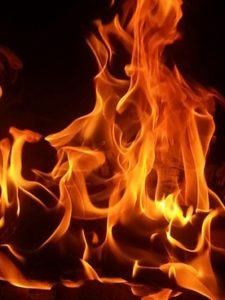 I imagine myself, 2000 years ago. Somehow I managed to escape the Roman pillage of Jerusalem, somehow I managed to escape the deadly rivalry between the Jews. I look back for a moment. My whole world is up in flames. My eyes are watering from the smoke. The smell is of death. I see the ashes, our Holy Temple smoldering. All is destroyed. There has been so much death. I think of all the materials that were used; cedars from Lebanon, the gold, silver, copper and brass expertly crafted into the utensils needed for accepting the ritual sacrifices. I think of all the hours of careful and tedious work that went into weaving the drapes and the garments of the priests. I remember the exquisite colors of the drapes; sky blue, dark red, crimson. I remember the holy priests with their pure white robes adorned with a breastplate set with precious gems. All was gone. All destroyed. Who would lead us? How would we repent? Where would we bring our peace offerings or our offerings of gratitude? Where would we rejoice? Where would we find the Almighty?
I imagine myself, 2000 years ago. Somehow I managed to escape the Roman pillage of Jerusalem, somehow I managed to escape the deadly rivalry between the Jews. I look back for a moment. My whole world is up in flames. My eyes are watering from the smoke. The smell is of death. I see the ashes, our Holy Temple smoldering. All is destroyed. There has been so much death. I think of all the materials that were used; cedars from Lebanon, the gold, silver, copper and brass expertly crafted into the utensils needed for accepting the ritual sacrifices. I think of all the hours of careful and tedious work that went into weaving the drapes and the garments of the priests. I remember the exquisite colors of the drapes; sky blue, dark red, crimson. I remember the holy priests with their pure white robes adorned with a breastplate set with precious gems. All was gone. All destroyed. Who would lead us? How would we repent? Where would we bring our peace offerings or our offerings of gratitude? Where would we rejoice? Where would we find the Almighty?
Between Diaspora and Homeland by Peter Eisenstadt and Ayala Emmett
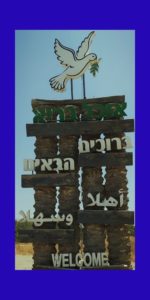
In 2021, the United States ended four years of an autocratic President and Israel just formed a coalition that ousted a similarly autocratic PM. Much has been made of the similarity and affinity between the two, yet this discussion is not a rehashing of the rise and fall of these leaders. Rather, what is most striking is that almost ninety percent of the Jews in the world are now living in Israel and the United States and that both countries have played a major role in changing Jewish history almost beyond recognition.
The history of the Jewish diaspora, as it existed for two millennia, is no more. The Jews are no longer spread out across the nations. The Jewish presence in Eastern Europe and in the Middle East (with the notable exception of Israel) is vestigial. Jews in the United States are the large remaining example of the Jewish diaspora, yet with unprecedented cultural, social, and political participation. American Jews embraced English as their language, they no longer are seriously concerned about fitting in and do not have to worry about legal, cultural, or economic barriers to their full citizenship. While the United States, in 2021, is far from a paradise of inclusion, it is hard to deny that it has been good for the Jews in a way that has never existed before in the history of Jewish diaspora.
Joseph Eisenstadt by Peter Eisenstadt
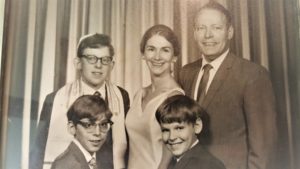
On July 3rd, 2021, my father, Joseph Eisenstadt, would have turned one hundred years old. He hasn’t been with us for over twenty years. He was a good dad. I am proud to have been his son. He did not have a terribly easy life, a life whose early years were dominated by the discontinuities between Jewish life in Eastern Europe and in the United States. I don’t know if it is quite a myth, but there is a widespread belief that when Eastern European Jews came to the United States, the transition was relatively easy. There are exceptions, and the Eisenstadts were exceptions. Dad was born in Manhattan, but his parents were newcomers to America, arriving around 1920. My dad’s older brother, Sol, was born a few years before in Slutsk in Belarus. His was also a hard life. He told the story, which I think in some ways epitomized his somewhat unhappy life, that when leaving from Slutsk to America in an ox-cart, when he was an infant, he fell out of the cart, and no one noticed that he wasn’t there until my grandparents had traveled a verst or so, and then they went back to retrieve him, finding him lying in the road.
Spiritual Audacity in Twentieth Century America: Abraham Joshua Heschel and the Other Prophets by Peter Eisenstadt
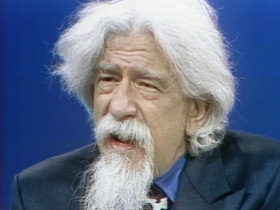
It is always a good time to think about, to read, and now to watch Abraham Joshua Heschel. There is even a better reason now. There is a new film, just out from Journey Films, directed and produced by Martin Doblmeier, Spiritual Audacity: The Abraham Joshua Heschel Story.
“What manner of man is the prophet?,” asks Abraham Joshua Heschel, in the opening words of his 1962 masterwork The Prophets. Heschel tells us. The prophet has an acute sensitivity to evil. Acts that others might dismiss with a shrug, or explain away as the dog-eat-dog way of the world, incite the full fury of their indignation at what Heschel calls “the secret obscenity of sheer unfairness.” This the prophet feels fiercely, a sensitivity to evil that is a divine illness. They know that God has placed a burden on their shoulders, and thrust a coal into their mouths. The prophet feels the pathos of God, and becomes its vessel. The prophet is an iconoclast, a breaker of images, a seeker of holiness who has no patience or tolerance for its feigned imitations or facsimiles, an unwelcome guest in the Temple. The prophet decries evil and the pollution of the divine word, but is aware that to castigate only the wicked lets everyone else off the hook, and in Heschel’s famous words, “few are guilty, all are responsible.” All misdemeanors become felonies. But in this refusal to accept gradations of accountability they are insisting on our linked fates, that God is less interested in the fate of individuals than our collectivities, our communities, cities, and nations. Prophets are bringers of both comfort and wrath. And so while prophets are not sentimental, they are compassionate, recognizing human shortcomings and limitations, and that because of this, our shared fate will never eliminate desperation and suffering.
After The Ceasefire The Hard Work Begins by Peter Eisenstadt and Ayala Emmett
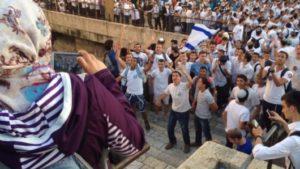
When American Jews think of the role of rabbis and community leaders in the civil rights movement, Abraham Joshua Heschel’s declaring that he was “praying with his feet,” comes to mind. For Heschel prayer was never just intoning words, it was an act with intention; when it came to justice, the best way to pray, according to Heschel, was is to act on its behalf, to move it forward, to march with Martin Luther King, Jr. in Selma. In his book Heavenly Torah, Heschel writes of the responsibility of political leaders: “To what can this be compared? To a person charged with guarding an orchard. If the person guards it from outside, it is well guarded. But if the person guards it from the inside, whatever is within will be secure, while that which is outside will not be secure.” As long as Israel’s leaders only care about and privilege its Jewish residents above its Palestinian ones, it will never be secure. This has been obvious for decades to those who cared to look. It has been demonstrated again in the past two weeks.
Waiting for Biden’s Compassion by Peter Eisenstadt and Ayala Emmett
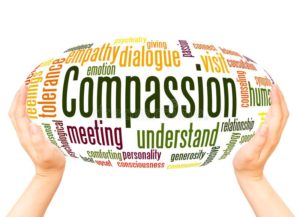 Watching the suffering in Israel, the West Bank and Gaza, we are waiting for President Biden, the one who on the evening before his inauguration spoke of suffering and healing. We are waiting for that leader who consoled a grieving nation in a remembrance ceremony honoring those who died of the Covid-19. We are waiting for the man who gave a clear message that night, “to heal, we must remember. It’s hard, sometimes, to remember. But that is how we heal.”
Watching the suffering in Israel, the West Bank and Gaza, we are waiting for President Biden, the one who on the evening before his inauguration spoke of suffering and healing. We are waiting for that leader who consoled a grieving nation in a remembrance ceremony honoring those who died of the Covid-19. We are waiting for the man who gave a clear message that night, “to heal, we must remember. It’s hard, sometimes, to remember. But that is how we heal.”
An exhausted people after four years of Trump, we were so moved when Joe Biden demonstrated the significance of compassion as a fundamental must for a leader. We have appreciated every time President Biden told someone in pain that he understood suffering and the difficult journey that humans take to get through tragedies. A mensch we called him.
Because We Care by Ayala Emmett and Peter Eisenstadt
We as Jews must not stand idly by when a grave injustice is done in a country and a city we love. We believe that Jews have a right to a state and so do Palestinians. We stand with Israeli organizations like Ir Amim that “envisions a city that ensures the dignity and welfare of all its residents and safeguards their holy places, historical and cultural heritages – today, as well as in the future. Ir Amim aspires to a sustainable political future for Jerusalem as the shared capital of two sovereign states – achievable only through a negotiated Israeli-Palestinian peace process.”
Is She Safe in School Today by Ayala Emmett
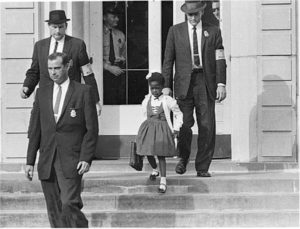
I saw the story of Timmia Williams on Wednesday, four days after I got the Sunday paper. During the week I read several newspapers on line. Sunday is different, I get the paper delivered to my front door bundled up and protected from snow or rain. In my hands I hold printed news of the nation and the world. I look forward to a leisurely breakfast, an extra cup of coffee and read my favorite sections. I start with the week in review, I love the letters to the ethicist that despite four year of big lies, people are still searching for moral clarity; I read about modern love, and work my way back to the first section of the New York Times. It takes me a couple of days to read the entire paper.
